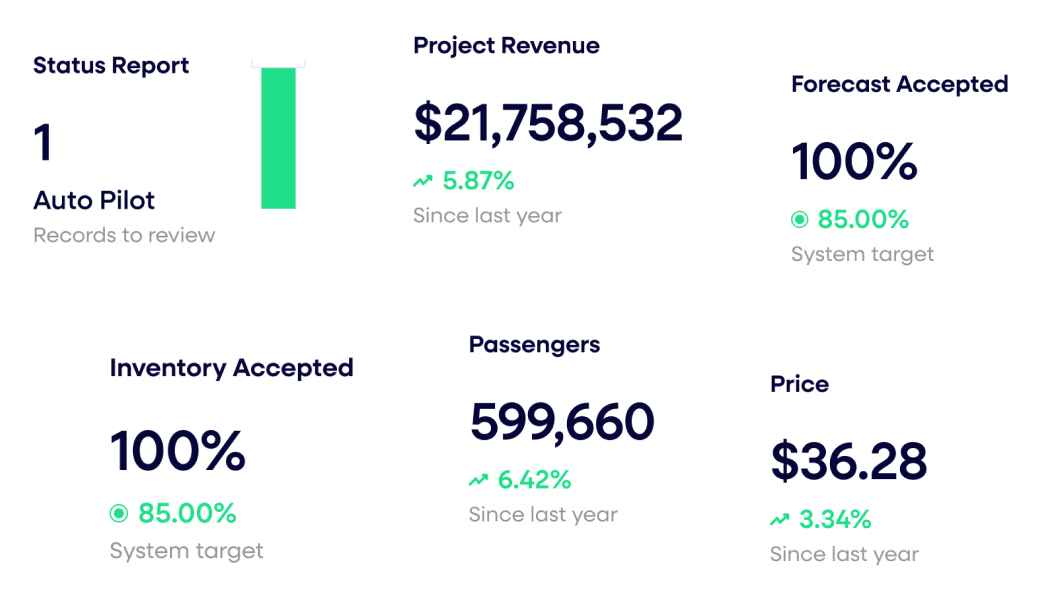The Importance (and Challenge) of Budget Season for Revenue Teams

It’s that time of year again: budget season is upon us. If the thought of budget season elicits a collective groan from you and your team, you’re not alone. After 20+ years of working with hospitality organizations of all shapes and sizes, we’ve learned two things about this annual activity:
- It can be painful, for a variety of reasons.
- Having the right systems in place – specifically, the right revenue management system (RMS) to support your team – makes a world of difference.
Budget season shouldn’t just feel like a box you have to check – it should hopefully be an informative, strategic, and collaborative exercise that can set your team, and your organization, up for success the following year.
Budget season: what it is (and why you might be dreading it)
Budget season is typically comprised of two distinct parts:
- Forecasting. This is the nitty-gritty, digging into the numbers part of the exercise. It involves taking a deep dive into how you performed this year, understanding the various factors that contributed to that performance, and using that information to try to forecast what you will do next year. Revenue management teams really have to roll up their sleeves and dig into the data, which is no small feat. Not only do you have to interpret the prior year’s worth of performance data, but you also have to anticipate external market factors that will impact next year’s growth.
The added challenge: when it comes down to it, the final forecast is influenced by more than just the numbers. Leadership often has their own ideas, goals, and pressures to navigate, and revenue management teams might face the frustration of being told to “just increase everything by 3%.” - Strategic planning. This is less about the numbers, and more about the “how.” You’ve established your performance goals – now how are you going to achieve them? Cross-functional alignment and commercial strategy are king here. These decisions can’t be made in a vacuum, and making sure all the right stakeholders have a seat at the table is critically important for organizational buy-in and success.
Balancing the reality of the numbers with the needs and opinions of stakeholders is undeniably challenging. And while we can acknowledge that budget season isn’t quite as fun as the other seasonal activities that come with this time of year, we also must accept that it’s not going anywhere.
Trusted by 10,000+ hotels to power smarter pricing decisions that maximize profits.
How your RMS can help
The forecasting part of the budgeting process is where the technology you have in place – particularly your RMS – plays a key role. Revenue management teams often feel like they are having to start from scratch at the start of budget season, which is understandably overwhelming. But your RMS should at least provide you with a place to start. It’s easier to edit than to write a first draft, and revenue management teams should have access to systems that will generate that first draft for them, even if it’s not perfect.
For example, N2Pricing™ RMS generates a Forecast Deep Dive report, and this is exactly where we recommend our customers start when approaching budgeting and forecasting exercises. Instead of hunting for data across disparate systems and scrambling to consolidate the prior year’s numbers, this report provides all the key statistics revenue managers need to build a solid foundation for next year’s projected forecast.
At the end of the day, if you have an RMS, that RMS has a forecast – which means you shouldn’t feel like you’re starting from scratch. If you DO feel that way, or your forecast requires so much re-working that it does more harm than good during budget season, then maybe you should be considering a new RMS as part of next year’s strategic investments.
Same time, next year
The good (and potentially bad) news about budget season: it’s just a season. It comes around every year, and it feels challenging while we’re in it, but it inevitably ends, and you and your team can move on to the next initiative.
But while it does thankfully end, its influence is felt throughout the year. Key stakeholders, such as owners and the executive team, are going to want to know how you’re performing against your budget and any re-forecasting. This is another place where your RMS should be making your life easier, not harder. If you have to pull a million reports or feel that you and your team are living and dying in Excel in order to answer questions and guide conversations with leadership, then your RMS might not be the best fit for your business.
Budgeting and forecasting, while challenging, are critically important activities that aren’t going anywhere. Having the right supporting technology in place and a mindset focused on commercial strategy and cross-functional alignment can make the season a little less painful and a lot more productive.
To learn more about what we’ve learned from years of working with hoteliers navigating budget season, or to see how N2Pricing provides a clear jumping-off point for this exercise, connect with an expert on our team.
Last updated on October 16, 2025






